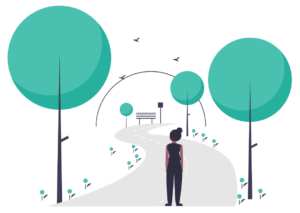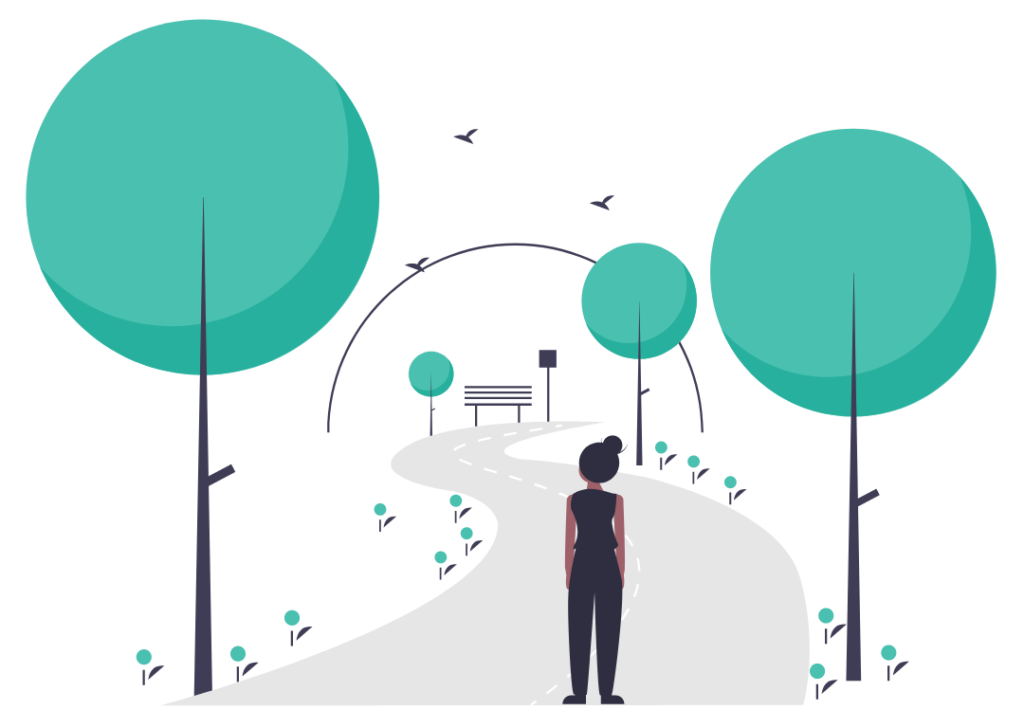
Caregiving with Love, Not Fear
Rose and her husband were about to start the business of their dreams when her mom was diagnosed with stage IV cancer.

Emmy dropped out of college to care for her mom, who had a degenerative bone disorder, and her stepfather, who was diagnosed with late stage cancer. Her role as a caregiver continued over the years as she cared for her uncle, her grandmother, and her grandfather. With many years of caregiving experience, Emmy shares the stress and strain she’s felt, the importance of being an advocate for your loved ones and how she’s learned to care for herself while accepting that sometimes it’s just impossible to find a healthy balance. This is Emmy’s story.
As told to Open Caregiving and lightly edited to enhance readability while preserving the author’s voice.
Hi, my name is Emmy. I’m a Gen X woman from Illinois. I am currently a full-time caregiver for my grandmother and provide care for my uncle as needed.
I started caregiving when I was 20. My mom was hit by a car a few years before and her health grew worse, especially with my stepfather being diagnosed with late stage cancer. I dropped out of college to work full time so my mom could stop working and focus on her health while we both cared for my stepfather. When he passed in 2006, I moved in to my grandparent’s home and began caring for them part-time while also caring for my mom and my uncle.
Through those years I worked full time and pursued a career in theatre. I went back to school at 29 and by 36 I had to give up my career in theatre to take care of my grandparents full time. I cared for my mom until her death in 2015, and my grandfather until his death earlier this year. I am currently taking care of my grandmother full-time and my uncle when needed.
I have strained relationships with the family members I cared for in the past and am caring for now. I’d be lying if I said there wasn’t any resentment.
My mom and I were super close before her and my stepfather’s health deteriorated. I was young and just starting out in life. I had to defer my dreams and goals. I was scared. My mom had always been the strong one. Watching her get sicker and sicker and not being able to do anything to “fix” her was terrifying. I was overwhelmed, felt lost, and felt that I just had to deal. I didn’t feel as though I could lean on her or ask anyone for help. All of which lead to me pulling away emotionally from her.
As I stepped into caring for other family members, I ended up following the same pattern. Feeling overwhelmed and often lost, resentful, and pulling away. Though I recognize these feelings, I’ve yet been able to stop myself from feeling this way or pulling away. I used to be very close with my uncle and grandmother, but I’ve pulled away emotionally as they need me more and more.
A drunk driver hit my mom while she was crossing the street when I was 15. That triggered a degenerative bone disorder that caused her bones to effectively disintegrate over time. She went from physician to physician over several years and was prescribed a long list of medications. That eventually led to heart and kidney problems, on top of the degenerative bone disorder.
My step dad was diagnosed with late stage lung cancer and skin cancer.
My uncle is HIV+. His viral load has been undetectable for many years now, but he has had several years of intermittent health crises. This included hospital stays with longer recovery periods, and multi-week dialysis treatments.
My grandfather had leukemia and survived colon cancer, diabetes, and heart and kidney disease.
My grandmother had early onset Parkinson’s and the beginnings of dementia.
Taking care of myself is paramount. If I’m not okay, I’m not able to take care of my family effectively. This includes physical and mental health. It’s okay to set limits and boundaries. It’s also okay for those limits and boundaries to be flexible as things change.
Don’t expect anyone else to advocate for your loved ones. Physicians and nurses and hospital staff are there to help, but you have to speak up. Don’t be afraid to ask questions until you understand. If you don’t feel you or your family member are getting what you need, speak up. Find the patient advocate, patient relations, office manager, whoever you need. If possible, find a different physician.
It is literally your family members well-being at stake. Advocate for your family member’s mental health, too. Their mental well-being can have a drastic effect on their physical well-being.
In my experience, if you’re young, or look young, many physicians did not want to deal with me even though I had medical power of attorney. They brushed off my questions and concerns even as I had a family member in a coma.
I make sure I have my own space with my things that are quiet and peaceful. I take time to sit outside or go for a walk. Therapy. Lots and lots of therapy. I try to maintain a bi-monthly get together with friends to decompress (though that’s on hold because of the COVID-19 pandemic). Boundaries and limits are important, though they sometimes feel impossible.
And to be honest, sometimes I don’t balance. Sometimes there is just too much. Sometimes balance is impossible. I try not to beat myself up when that happens. When things calm down, I do my best to restore the balance.
Check with your city or state for resources, and also your family member’s physicians and insurance. There are a lot of resources — from Meals on Wheels, to in-home assistance (including physicians and nurses who will come to your home), to respite care so you can get a break. You’re not superman/woman, it’s okay to look for and accept help.
Also, look for support for yourself via in-person support groups, Facebook groups, Reddit, or therapy apps like BetterHelp or TalkSpace. Connecting with others who are living through what you are experiencing is invaluable and makes a huge difference.
If I’m being brutally honest? I’d tell myself not to do it.
That being said, I know that younger me wouldn’t have listened, so I’d tell younger me to not give up on herself even when it gets overwhelming. I’d tell her it’s okay to feel angry or resentful from time to time. It’s okay to put herself first sometimes.

Rose and her husband were about to start the business of their dreams when her mom was diagnosed with stage IV cancer.

Emmy dropped out of college to care for her mom and her stepfather, who both were diagnosed with sever illnesses.

As a child, Jill became her mother's primary caregiver after a stroke paralyzed her. She later cared for her father and older sister.